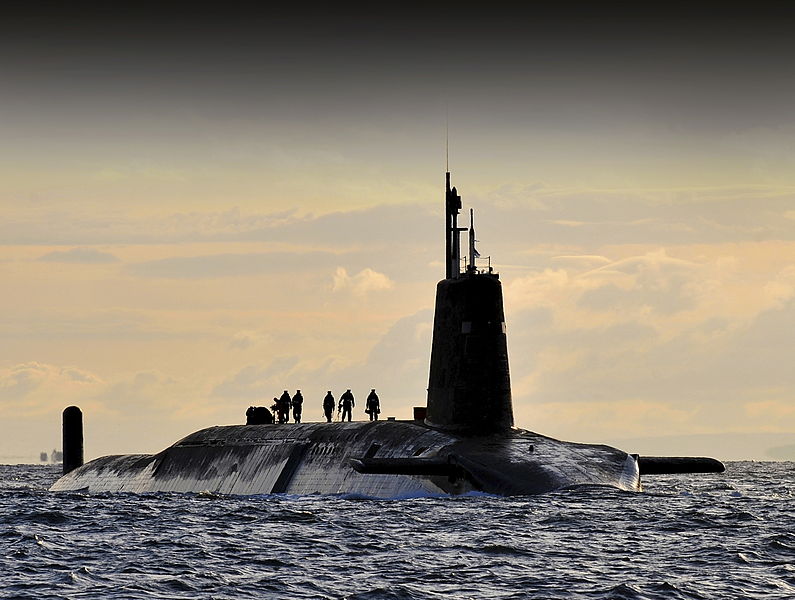
The 2021 nuclear year in review—with five enduring stories
Posted: 3rd January 2022
By Susan D’Agostino | December 27, 2021

Nuclear submarine HMS Vanguard. Photo: CPOA Tam McDonald/MOD accessed via Wikimedia Commons. Open Government License.
US House Speaker Nancy Pelosi got the 2021 nuclear year off to a rousing start when she—for good reason—spoke with the chairman of the Joint Chiefs of Staff about “preventing an unstable president from initiating military hostilities or accessing the [nuclear] launch codes.” On a brighter note, that same month the Treaty on the Prohibition of Nuclear Weapons entered into force, though none of the nuclear states have signed.
In February, George Shultz, one of President Ronald Reagan’s most trusted advisors during the Cold War, passed away. “If I could choose one American to whom I would entrust the nation’s fate in a crisis,” Henry Kissinger once said, “it would be George Shultz.”
In March, all eyes turned to North Korea’s short-range ballistic missile tests, which violated UN Security Council resolutions and threatened South Korea and the world. The month also marked the 10th anniversary of the Fukushima nuclear disaster, prompting some concerned scientists to remind the public and policymakers that a similar incident could happen again. This year also marked 75 years since the United States tested nuclear bombs in the Marshall Islands, though the country has yet to right the wrongs committed against the Marshallese people and their land.
In April, the United Kingdom raised its nuclear stockpile limits, “reversing two decades of progress towards a smaller and more transparent UK arsenal.” Also in April, Iran’s Natanz nuclear facility was sabotaged—allegedly by Israel—amid talks on reviving the Iran nuclear deal. Meanwhile, Japan announced a plan for releasing Fukushima’s wastewater into the sea, even before reestablishing public trust in that process.
In June, Russian President Vladimir Putin and US President Joe Biden injected the nuclear landscape with a dose of cautious optimism when they reaffirmedthe Reagan-Gorbechev statement that a nuclear war cannot be won and must never be fought. Those at the US National Nuclear Security Administration must have been whistling while looking at their shoes, the sky, or anywhere but their $505 billion expenditures for sustaining and modernizing nuclear warheads and production facilities.
Also, in June, Russia criminalized a US educational exchange program, leaving many academics and scientists deeply concerned about the fate of similar programs between the two adversaries. After all, intellectual and cultural exchanges continued even in the depths of the Cold War.
https://thebulletin.org/2021/12/the-2021-nuclear-year-in-review-with-five-enduring-stories/?utm_sour…